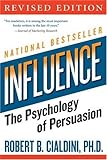I am not alone in wondering how it could be possible for so many highly educated and wealthy individuals to fall for a scam on the staggering scale of Bernard Madoff’s ponzi scheme. How could it be that a prominent and generally well respected individual like Bernard Madoff could fool so many people for as long as he did? More importantly, how can investors avoid falling for the next scam artist? While there were certainly warning signs as well as individuals such as Harry Markopolis who warned that Madoff’s enterprise was a ponzi scheme, for some reason individuals invested with his firm did not take action.
Charlie Munger, Berkshire Hathaway’s Vice Chairman, is an advocate of taking a multi-disciplinary approach to investing and to life in general. Essentially, what this means is that it is important to use tools from a number of fields to form a conclusion regarding any particular question. One of Mr. Munger’s book recommendations several years ago was Robert Cialdini’s “Influence: The Psychology of Persuasion”. This book is intended to provide individuals responsible for marketing with the tools needed to build effective campaigns, but it also provides a road map to individuals who wish to avoid allowing these “weapons of influence” to be used against them. Let’s take a look at how some of the weapons of influence discussed in Cialdini’s book were used by Madoff to fool his victims.
While there are many aspects of Cialdini’s book that could apply to Bernard Madoff, I believe that the bulk of his success was due to exploiting three very important tools of influence: Social Proof, Authority, and Scarcity. Each of these tools were used to first bait his victims and then to reel them in and keep them quiet over several years.
Social Proof
In ambiguous situations, individuals look to those around them to decide what conduct is appropriate and what actions to take. A famous example occurs when a group of people are waiting to cross the street and tempted to jay walk. If a well dressed individual who looks like he knows where he is going begins to cross the street, people are more likely to also begin to cross than if a homeless person begins to cross. People also associate with individuals who are like themselves in terms of their economic situation, ethnic background, common interests, etc. In the case of Bernard Madoff, most of his victims were Jewish and well connected in Jewish social circles in New York City and Florida. Madoff had a long history of supporting the Jewish community and was active in philanthropic activities. Given that Madoff has a number of wealthy Jewish clients, others within the community naturally assumed that Madoff’s firm was trustworthy. Social Proof ended up being a reason for lemming like behavior within a community where Madoff was well known and respected.
Authority
Bernard Madoff’s life story, up to the revelation of the ponzi scheme, reads like the ultimate bootstrap American success story. Over a period of nearly five decades, Madoff built his market making business from an initial investment of only $5,000 starting in 1960. The technology Madoff’s firm developed ended up becoming the technology of the NASDAQ which was founded in 1971. Madoff eventually served as the Chairman of the NASD, a self regulatory securities industry organization. So naturally, Madoff had impeccable credentials and an aura of authority that could be leveraged to gain clients (or rather victims) for his scheme. Would anyone approached by a man with Madoff’s credentials question his decisions or record keeping? After all, this was a man who was heavily involved in NASD and beyond question in terms of perceived integrity.
Scarcity
Madoff did not allow just anyone into his scheme. One did not simply pick up the phone and open an account with Madoff. It was necessary to be well connected and to know the right people. If you knew the right people and if they could “pull some strings”, then just maybe you would be able to get in and have the honor of Madoff handling your assets. This may seen absurd in retrospect, but the perceived scarcity of Madoff’s services and the fact that only the elite could get in served to create the aura of exclusivity that so many people crave. After all, if you could not say that you were invested with Bernard Madoff, what would your friends at the country club in Palm Beach think of you? This is social proof and scarcity wrapped into the same package.
The bottom line is that investors need to watch out and guard against the psychological “weapons of influence” that scam artists often employ to gain access to victims. Most of Madoff’s victims, while prominent in society in some way, were not competent when it came to evaluating investments or even understanding the risk/reward characteristics which alone caused suspicion. These victims allowed themselves to fall for textbook tricks that Madoff exploited in an expert manner.

